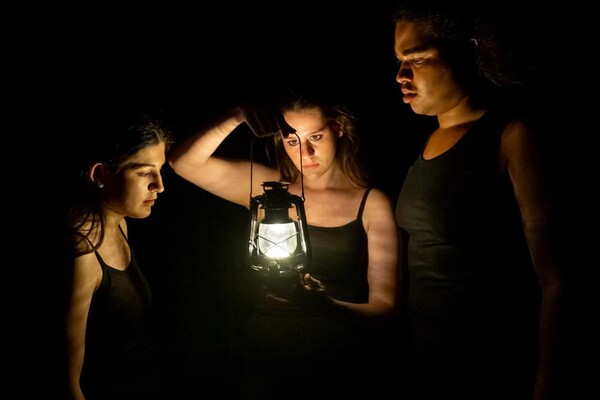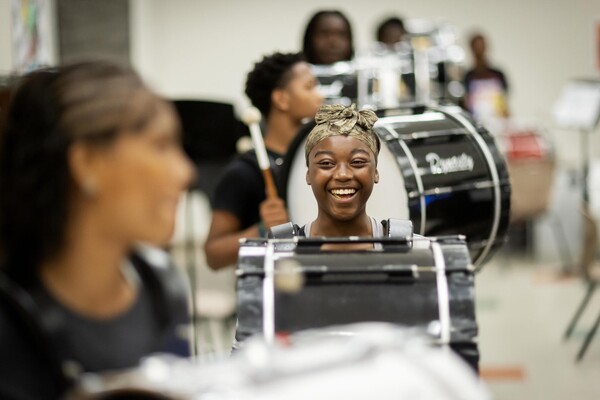
Image: Aditya Irawan/NurPhoto via AP Images
University of Pennsylvania student Joyce Kim is on a mission to spur intercultural dialogue across campus and halfway around the world in North and South Korea.
When she returns to campus this fall, Kim, a rising senior from Allen, Texas, will work with students and administrators to facilitate the expression of students’ diverse political and religious views, something she pledged to do when she successfully ran for president of the Undergraduate Assembly last spring.
This summer, she’s on a 10-week internship in New York at the Permanent Mission of the Republic of Korea to the United Nations, learning about the inner workings of the U.N. General Assembly. The internship is funded by an Association of Alumnae Scholars Rosemary D. Mazzatenta Award from Penn’s School of Arts & Sciences and with significant support from Civic House Public Interest Internship Funds.
During her internship, Kim is getting a thorough understanding of the day-to-day operations of the U.N. and how it works with national and regional governmental organizations, the private sector and civil society to push agendas forward.
She attends forums and meetings on the U.N.’s post-2015 development agenda and sustainable development goals, or SDGs. She creates briefs for meetings, drafts resolutions and does policy research regarding international law and treaties.
Completely enamored by the process, she says, “It has been fascinating!”
A fun aspect of the internship has been working on events hosted by the Mission, including the International Bazaar, an event at which all the missions from U.N. member states have booths with food and craft items, with proceeds going to the U.N. Children’s Fund. Kim says that she also enjoyed planning the Korean Food and Culture Night, a celebration for U.N. Secretary-General Ban Ki Moon’s birthday.
Kim, a Korean-American whose paternal grandparents crossed from North Korea to South Korea in the 1930s, is very interested in North Korean rights.
“The struggles of North Koreans hits close to home,” she says. “My internship is obviously not at a North Korean mission, but I can learn more about the constant pushes from the U.N. to open up some type of dialogue between North and South Korea.”
Korean is Kim’s first language, and growing up in Buffalo, N.Y., it was the only language she spoke at home. She attended English-as-a-second-language classes until second grade.
When she was 7, the family moved to Texas. She was the new kid in school and says that she was bullied.
“That was the first time I felt like an other,” she recalls.
By the time she graduated from Allen High School, Kim had found her niche in student government, withstanding the emotional pain of micro-aggressions, like the time someone asked why she was involved in student government, observing, “You’re an Asian girl.”
Kim’s resolve to effect positive change at school through education was strengthened when she saw how education helped her family climb the socio-economic ladder. Her father left “menial jobs” working as a bus boy for better jobs as he earned a master’s degree and eventually a Ph.D.
During her sophomore and junior years at Penn, Kim served as chair of the United Minorities Council, a student-run advocacy and support organization that works with Penn’s Asian Pacific Student Coalition, Latino Coalition, Lambda Alliance, Umoja and University administrators on issues of concern to minority students.
The summer before her junior year, she designed and spearheaded a Project for Peace-funded initiative in concert with Penn’s Netter Center for Community Partnerships and Greenfield Intercultural Center and with students and staff at two Philadelphia high schools to expand on a pilot program already in progress, The Fellowship for Building Intercultural Communities.
FBIC brings Penn underclassmen together with West Philadelphia high school students to develop cultural competencies and mutual understanding and to promote useful dialogue and peace.
In her project report summary, Kim concluded, “I want to spend my life figuring out how intercultural dialogue can be integrated into educational curriculum around the world. Although this is a lofty vision, the experiences from this summer have shown me that there is critical need for it, especially in a rapidly globalizing society.”
This past spring Kim was honored with the Pan-Asian American Community House Social Justice Award at the End of the Year Awards Dinner, hosted by PAACH and the Asian-American Studies Program.

Image: Aditya Irawan/NurPhoto via AP Images

nocred

Image: Michael Levine

A West Philadelphia High School student practices the drum as part of a July summer program in partnership with the Netter Center for Community Partnerships and nonprofit Musicopia.
nocred